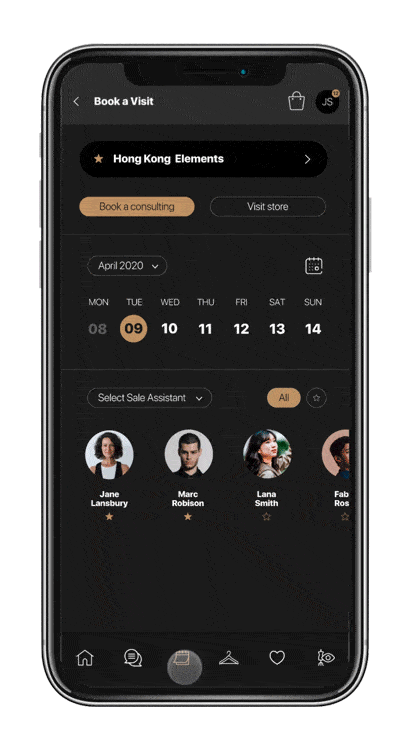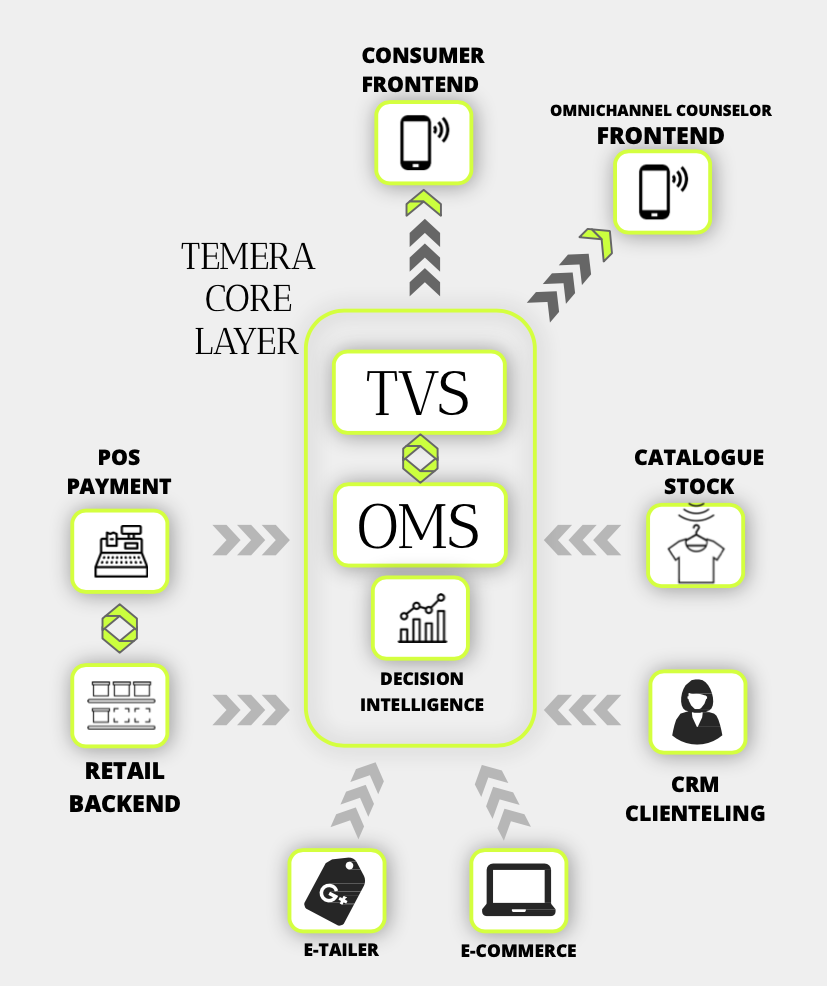- Increase visibility for this new touchpoint: since it is a real sales channel, the user experience must designed properly and the application must feature functionalities and content useful enough become relevant for customers.
- Working with Merchandising / Buying to select a few products to focus on. Browsing just another ‘too assorted catalogue’ through a different tool does not give any kind of advantage. A sharp selection of leading products featuring enough quantities on hand, can lead to an increase in sales and a rationalization of operating costs for the platform.
- Carefully evaluate integrations with pre-existing platforms in the corporate ecosystem: a Live Commerce that does not communicate with CRM or that cannot write a cart on legacy Ecommerce systems makes no sense to exist.
- Adequately train staff to use the instrument on a technical perspective. At the same time, enhance the ability of Live Commerce to attract traffic and generate returns at the point of sale.
Hype Cycle – Live Commerce
Virtual Retailing is here to stay
From big names in the Luxury industry to small city-localized businesses up to mall and shop conglomerates
The race to adopt Live Commerce video streaming platforms has just begun.
This kind of application is usually provided through mobile apps and the live streaming function can be delivered in the form of a virtual store visit, integrated with social network and featuring functionalities of direct purchase and check-out.
These services experienced a surge during the lockdown period, when many businesses were forced to use digital channels and Live Commerce practices became particularly attractive, thanks to the ease of adoption and speed in the startup. However, having a tool is not enough, there are many factors to take into consideration.
Here follows Temera’s for a successfull Live Comerce project.

What kind of result to expect?
The technological entry barrier is low for both users and operators: a smartphone is all you need to go. Organizations even with low peripheral coverage of technically qualified personnel can launch a first pilot in a very short time and then scale according to returns on large networks of stores.

The suite is extremely flexible, scalable and allows a first adoption in extremely short times. Among the features on which some client companies have turned their attention in the pilots and project deliveries we find
- virtual store visit: or the opportunity of making an immersive 360 ° tour of the store mode by interacting with the featured product in the exhibition areas
- face call: an interactive call that make connection between the customer and the Sales Associate, allowing a shared screen where both can interact while browsing the virtual space
- wishlist: capability of inserting products in a temporary cart that can be converted when needed into direct purchase, items reservation for an instore trial and submission of fulfillment orders to a centralized Distributed Order Management engine
Temera promotes a concept of “Plug & Play Omnicommerce API”
An innovative view of technology applied to a complex eco-system, like the one that characterizes the majority of modern Fashion and Luxury companies: a maze of vertical applications that can be orchestrated thanks to TVS towards a new way of doing Retail.

